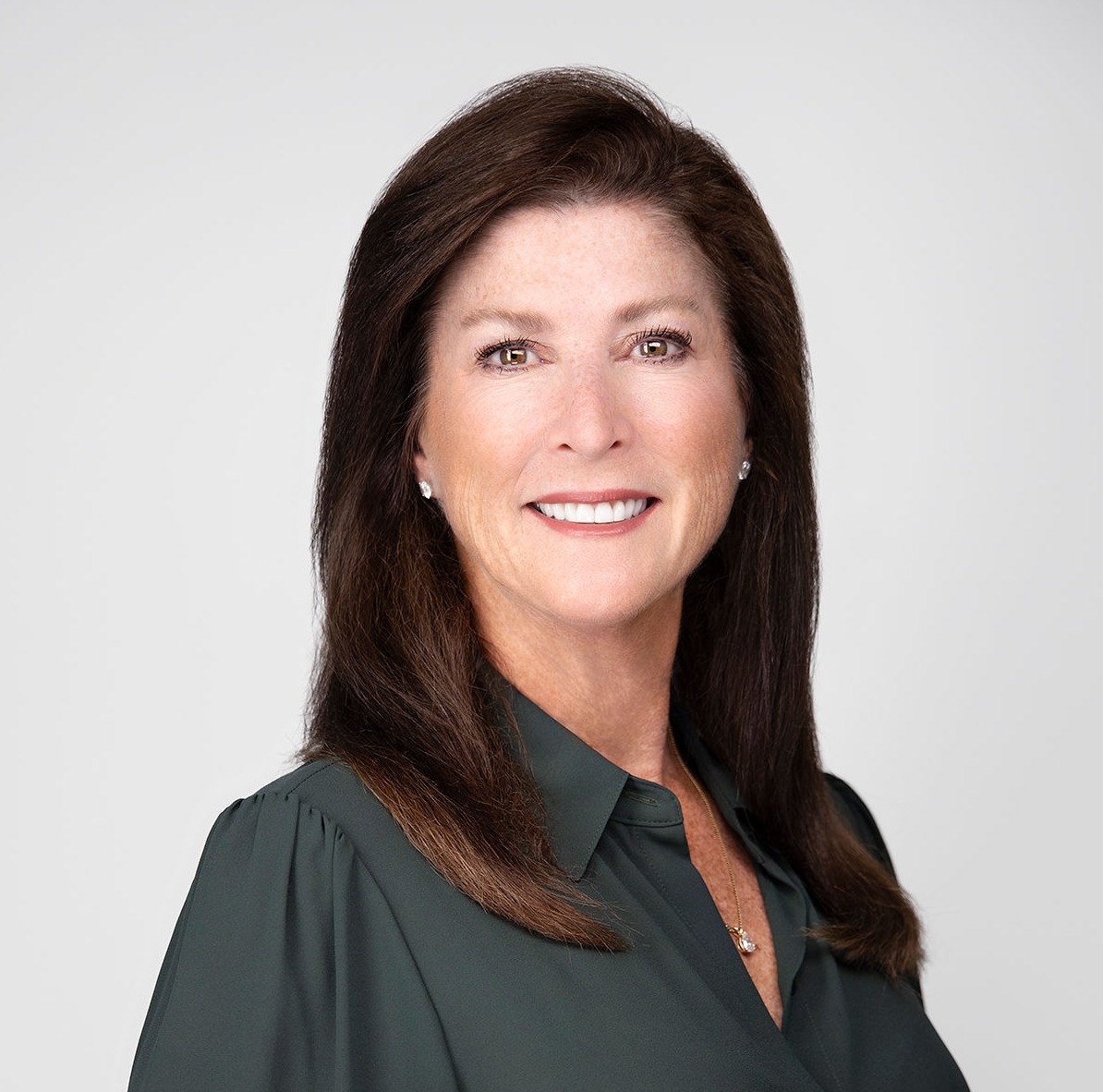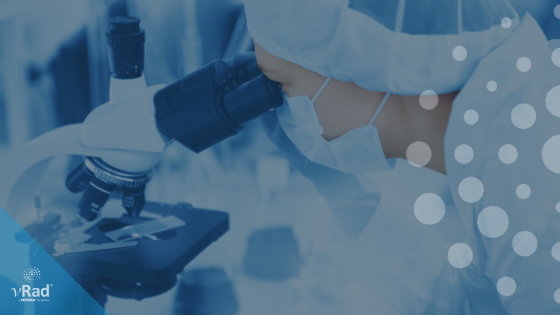Bringing Subspecialist Breast Imaging Back to a Rural Community: A Big Win With Telemammography
A Community at Risk As the Director of Radiology at Hocking Valley Community Hospital, I have seen firsthand the challenges of providing specialized...

Remote radiologist jobs with flexible schedules, equitable pay, and the most advanced reading platform. Discover teleradiology at vRad.

Radiologist well-being matters. Explore how vRad takes action to prevent burnout with expert-led, confidential support through our partnership with VITAL WorkLife. Helping radiologists thrive.

Visit the vRad Blog for radiologist experiences at vRad, career resources, and more.

vRad provides radiology residents and fellows free radiology education resources for ABR boards, noon lectures, and CME.

Teleradiology services leader since 2001. See how vRad AI is helping deliver faster, higher-quality care for 50,000+ critical patients each year.

Subspecialist care for the women in your community. 48-hour screenings. 1-hour diagnostics. Comprehensive compliance and inspection support.

vRad’s stroke protocol auto-assigns stroke cases to the top of all available radiologists’ worklists, with requirements to be read next.

vRad’s unique teleradiology workflow for trauma studies delivers consistently fast turnaround times—even during periods of high volume.

vRad’s Operations Center is the central hub that ensures imaging studies and communications are handled efficiently and swiftly.

vRad is delivering faster radiology turnaround times for 40,000+ critical patients annually, using four unique strategies, including AI.
.jpg?width=1024&height=576&name=vRad-High-Quality-Patient-Care-1024x576%20(1).jpg)
vRad is developing and using AI to improve radiology quality assurance and reduce medical malpractice risk.

Now you can power your practice with the same fully integrated technology and support ecosystem we use. The vRad Platform.

Since developing and launching our first model in 2015, vRad has been at the forefront of AI in radiology.

Since 2010, vRad Radiology Education has provided high-quality radiology CME. Open to all radiologists, these 15-minute online modules are a convenient way to stay up to date on practical radiology topics.

Join vRad’s annual spring CME conference featuring top speakers and practical radiology topics.

vRad provides radiology residents and fellows free radiology education resources for ABR boards, noon lectures, and CME.

Academically oriented radiologists love practicing at vRad too. Check out the research published by vRad radiologists and team members.

Learn how vRad revolutionized radiology and has been at the forefront of innovation since 2001.

%20(2).jpg?width=1008&height=755&name=Copy%20of%20Mega%20Nav%20Images%202025%20(1008%20x%20755%20px)%20(2).jpg)

Visit the vRad blog for radiologist experiences at vRad, career resources, and more.


Explore our practice’s reading platform, breast imaging program, AI, and more. Plus, hear from vRad radiologists about what it’s like to practice at vRad.

Ready to be part of something meaningful? Explore team member careers at vRad.
3 min read
 Arlene Sussman, MD
:
October 11, 2017
Arlene Sussman, MD
:
October 11, 2017

One in eight women will develop breast cancer.
It’s a frightening statistic that will be shared repeatedly during National Breast Cancer Awareness Month (NBCAM). And while it is accurate, it’s a statistic that I always caution could benefit from some perspective.
The one-in-eight ratio represents a lifetime risk, one that increases with age.
At age 40, for instance, your chances of developing breast cancer are only about one in 250. At age 50, it’s one in 50. And, only when you reach age 80 do your chances rise to one in eight.
There are exceptions to those odds, however, for the roughly 5 percent of women who have a genetic mutation in their BRCA1 and BRCA2 genes.
What is BRCA?
 |
The name “BRCA” is an abbreviation for “BReast CAncer gene.” BRCA1 and BRCA2 are two different genes that have been found to impact a person’s chances of developing breast cancer. |
These genes produce tumor suppressor proteins, which help repair damaged DNA. When mutated or altered, however, DNA damage may not be repaired properly and cells are more likely to develop additional genetic alterations that can lead to cancer.
Unfortunately, women with this gene mutation have an almost 85-percent chance of developing breast cancer.
The much more promising news, however, is that simple genetic testing can identify those with the mutation, allowing them to take proactive and preventive measures to help protect themselves.
As you can imagine, given the millions of families who have been affected by breast cancer, this testing is the subject of much interest and conversation.
With that in mind, here are my answers to some of the most common questions I receive about genetic testing for breast cancer screening:
Although the test is simple (conducted using only saliva or a small blood sample), it’s not something I recommend to everyone.
But I do encourage anyone with a significant family history of breast or ovarian cancer to take the test, including anyone with a first-degree relative (mother, daughter, sister) who developed breast or ovarian cancer before menopause.
There are other health and family-related red flags (see below) that your doctor and mammogram clinic staff can help you identify and determine if a genetic test may be right for you.
Your doctor and staff at your chosen mammogram clinic are the best people to help you determine if gene mutation testing is right for you. But here are some red flags that can influence your chances of developing breast cancer.
It’s also important to note that because today’s genetic tests have improved significantly over earlier versions, those at significant risk who were tested several years ago may consider a re-test for additional peace of mind.
Years ago, when there weren’t as many options for treating and caring for those who tested positive, this was a more difficult question to answer.
Today, I’m pleased to say there are a wealth of available treatments and strategies to help those who test positive for the BRCA genes.
And so my current answer to this question is that knowledge is power.
The overwhelming majority of women whom I encounter after testing positive actually feel a sense of relief that they know.
Armed with the information that they have the gene mutation, they feel empowered to take control of their plan for care and prevention.
With the knowledge that you may be at higher risk for breast cancer, the most common course of action is to become much more vigilant in your breast cancer screening.
In addition to annual mammograms, I also recommend an annual MRI, which is the best screening tool available. Regular exams by a breast specialist or surgeon are another sensible and effective layer of prevention.
Other women choose more aggressive preventive steps in the form of surgical removal of their breast tissue.
Obviously, it’s a decision that doesn’t come without extensive dialogue with family, doctors, genetic counselors and psychologists. But it’s one that gives many women comfort by removing the significant burden of living their lives waiting for the other shoe to drop.
It’s a decision that’s also been made easier by the fact that post-mastectomy surgery options have advanced dramatically in recent years. With the reconstruction options available today, women are able to feel feminine and whole again.
It’s important to note that at the end of virtually any question I answer about breast cancer, I strongly encourage women to talk to their doctors, to ask questions and to be an advocate for their care.
With so many effective preventive tools at our disposal, including genetic testing, the most important step you can take is to engage in dialogue with those who can help.

A Community at Risk As the Director of Radiology at Hocking Valley Community Hospital, I have seen firsthand the challenges of providing specialized...

On September 28, 2016 vRad announced that it implemented its first breast imaging Live Video Diagnostics solution site at the Center for Women’s...
.png)
Originally published by Theresa A. Cavins, MD, FACS on Radiology Business As the chief of surgery specializing in breast care, I’ve seen firsthand...
vRad (Virtual Radiologic) is a national radiology practice combining clinical excellence with cutting-edge technology development. Each year, we bring exceptional radiology care to millions of patients and empower healthcare providers with technology-driven solutions.
Non-Clinical Inquiries (Total Free):
800.737.0610
Outside U.S.:
011.1.952.595.1111
3600 Minnesota Drive, Suite 800
Edina, MN 55435